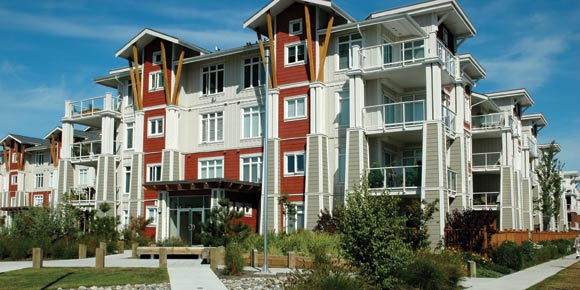Owning a condominium differs from owning a conventional home in several ways. Key differences include:
What do you Own?
When you purchase a condominium, you own a private dwelling called a “unit.” Your unit is registered in your name. You also share ownership of the common elements and assets of the building and community.
It’s important to be clear where your unit’s boundaries are located before you purchase. You’ll want to know, for instance, whether you’ll be paying for window washing or repairs to your townhouse’s bricks or whether the condominium corporation will be responsible for this. You can find information about your unit’s boundaries in your condominium’s governing documents.
Some condominium units (called freehold condominiums) include ownership of the land your home is on. If this is the case, your unit may be the entire house including the exterior walls, the roof and the lawn. You may want to carefully review the condominium corporation’s site plan, prepared by a professional surveyor, so you know exactly where your unit’s boundaries lie.
Common elements may include lobbies, hallways, elevators, recreational facilities, walkways, gardens and other amenities. They may also include structural elements and mechanical and electrical services.
Some common elements may be outside the unit boundaries, but are for the sole use of the owner of a particular unit. Balconies, parking spaces, storage lockers, driveways and lawns are common examples.
What will you Pay?
In addition to paying for your unit and a proportionate share of the common property, you also pay monthly condominium fees, along with all of the other unit owners. This covers the upkeep and replacement of common elements — whether you use them or not. The fees may also cover the corporation’s insurance policies, utilities and services such as snow removal.
Part of those monthly fees may be put into a reserve fund to cover the estimated cost of future maintenance and repairs.
Required by law in Manitoba, a reserve fund study is often used to tell condo owners how much money should be paid into the reserve fund. Conducted by an engineer or other professional, it involves a detailed examination of all components, an analysis of when repair and replacement are expected, and an estimate of these costs.
Condominium fees may have to be adjusted from time to time to reflect the changing costs of goods and services and the state of the building’s reserve fund. Look for these adjustments in the next year’s budget.
Don’t expect a refund if the board overestimates the common expenses. Refunds are not commonly given to unit owners. Instead, surpluses are typically either applied to future common expenses or paid into the reserve fund.
If a unit owner sells a unit before the end of the condominium corporation’s fiscal year, the owner cannot obtain a refund for any prepaid common expenses but should provide for adjustments for prepaid expenses in the purchase or sale agreement.
— Canadian Mortgage and Housing Corporation



